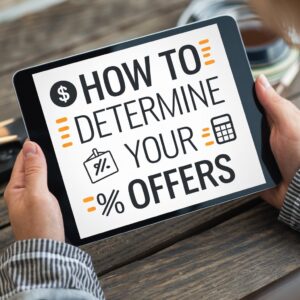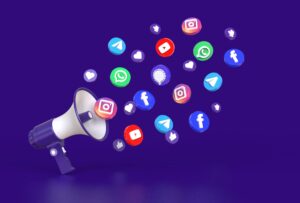Sales events are an effective strategy for driving foot traffic through your doors, allowing staff members to interact with potential clients and convert warm leads into closed sales.
However, sales events should be about far more than just what happens during the one to three days the event takes place. Instead, these events should be part of a larger marketing strategy, empowering future sales and ongoing brand loyalty.
One key tactic to ensuring that you get the most out of a sales event is having a designated event coordinator at the event.
This is critical for a myriad of reasons, which will be explored in depth. Check out the seven reasons you need a designated event coordinator at your next sales event.
1. Prevent Distraction From Roles
One of the top reasons to have a designated event coordinator at your next sales event is to prevent sales staff, location managers, and service department team members from being distracted from their own work during the event.
A sales event is an excellent chance to showcase the best quality of customer interaction possible. However, a sales event also takes a lot of work to pull off smoothly. With the added foot traffic coming in and out of the showroom, staff members can quickly become overwhelmed if they are juggling both their normal work and the coordination of the event.
By designating one or two coordinators for the day, the rest of the staff is free to focus on what they do best to deliver what really matters — wowing customers and closing sales.
When you do designate an event coordinator, ensure role expectations are clear. Additionally, make sure that other staff members know their roles so anything that comes up during the event can be funneled the right way.
With everyone free to focus on their own job, your sales event will run more smoothly.
2. Increase Customer Satisfaction
During a sales event, you will have a variety of customers coming through your doors. In some cases, they will be previous customers who are already familiar with your business and who have built their impression of who you are.
In other cases, they will be brand-new clients who have never interacted with your team before and do not have any preconceived notions about your brand.
Falling between these two customer types are those who have visited your showroom or website before, but have never converted to a sale. They might know your business a little, but have probably not built their full impression of your dealership yet.
Regardless of which bucket customers fall into, a sales event is the perfect chance to reinforce positive previous experiences, influence new perceptions, or even make up for less-than-ideal interactions from the past.
None of this is possible without the right strategy in place. A sales event coordinator can dedicate time during an event to ensuring that customers receive the best service. Having a dedicated event coordinator greet guests, direct them to the right location, and spend some time getting to know customers one-on-one will go a long way in creating a positive brand image.
3. Gather Critical Marketing Data
The dedicated event coordinator can both greet guests and lead them to the right sales or service staff, while also gathering critical marketing data.
Event coordinators should strategically gather as much of the following information as possible during the event:
- Name
- Address
- Phone number
- Reason for visiting
- Budget
- Vehicle preferences
- Current vehicle information
All of this information can be used in future marketing tactics, turning your sales event into a true data mine.
Historically, setting out a stack of contact cards and asking customers to fill them out as they enter the event has often been the strategy of dealerships for gathering information. However, this is hit-and-miss.
Having a coordinator greet people, spend time getting to know them, and then asking for that information is far more effective.
Additionally, event coordinators can check guests against a registration list from previous event marketing. This can also fuel future marketing efforts by providing data on what marketing was effective in driving leads through the door, as well as allowing for follow-up opportunities for those who missed the event.
4. Ensure Logistics Run Smoothly
A sales event involves an immense amount of logistics. From setting up the showroom to funneling people to the right place, to ensuring vendors arrive on time and provide the services they were hired for, for an event to run smoothly, someone has to be steering the ship.
While a location or division manager may have been the brains behind the event, the day of logistics should fall into the hands of someone focused only on event coordination.
Management needs to be focused on walking the floor, stepping in to help out sales teams as needed, and shaking hands to leave a favorable impression in the minds of customers.
A dedicated event coordinator will take on the burden of keeping the ship sailing smoothly.
5. Offer an Informed Post-Event Critique
While everyone hopes that a sales event goes off without a hitch, there is almost always room for improvement when hosting these events.
A designated event coordinator can spend time watching interactions, noting customers’ experiences, and looking for areas that could be improved.
In this way, a coordinator is the perfect person to offer an informed but objective post-event critique. For sales staff, managers, and service department employees, there is often too much going on to be able to take in all these critical details.
6. Present to Key Stakeholders on Takeaways
Long after the last customer has left and the final table has been folded and put away, an event coordinator’s job is far from finished. Instead, a coordinator should be tasked with presenting to key stakeholders on the takeaways from the event.
Topics to cover might include all of the following:
- What customer data were they able to gather? (That data should showcase specific numbers, e.g., number of names, phone numbers, and email addresses recorded)
- What was the total revenue generated from the event?
- What were the highlights of the event?
- What were areas for improvement for future events?
- What was the percentage of registered customers who showed up at the event?
- What tactics are planned for post-event follow-up?
7. Follow-Up Post-Event
Not only can an event coordinator present key findings from the sales event in a post-event synopsis, but they can also help to build a follow-up marketing strategy based on what was learned.
With the information that was gathered from customers during the event, many tactics can be employed to encourage customers to visit again and to help close a final sale.
SMS Marketing
SMS marketing is an easy way to get back in front of customers who visited your dealership. According to Asurion, average Americans check their phones 96 times a day, or once every 10 minutes.
This makes a follow-up texting strategy an excellent way to reach back out to customers who visited during an event. An SMS marketing strategy should involve careful thought about what information to surface in a follow-up and who will manage these conversations.
An example of a post-event SMS marketing tactic might be a quick message thanking customers for visiting and asking if they had any follow-up questions. This can open the door for sales members to engage further with on-the-fence customers.
Email Campaigns
Whether you are reaching out to folks who registered for your event and didn’t show, or touching base with customers who did research at your event but didn’t close a sale, email campaigns can be a great method for bringing customers to your showroom.
A great tactic to employ in a follow-up email campaign is to offer a customized special. For example, if you gathered information about a group of event attendees who currently have Toyota vehicles within a certain year range and you know about a recall on those cars, you could send a targeted email message inviting them to bring their car in for services.
This would be a quick, simple method that demonstrates that you care about these customers, that you know who they are, and that brings them back into your showroom without asking them to spend a penny.
Custom Ad Campaigns
After the sales event, a dedicated coordinator can be integral in assisting with the setup of a custom ad campaign. By providing key data points on visitors, an event coordinator can supply the insights needed to build out a customized ad campaign further targeting these leads.
For example, if your coordinator found a whole group of buyers looking to purchase a vehicle within a specific price range but with concerns about financing options, you could target an ad campaign to this group a week or two later, reminding them of your in-house financing options.
By customizing the ad campaign, you can create a message that resonates and brings customers back through your doors.
J&L Marketing Brings Expertise to Your Sales Events
At J&L Marketing, we understand the importance of having a dedicated event coordinator for any dealership events.
After years of experience assisting dealerships with marketing sales events and subsequently hosting those sales events, we firmly believe that an event coordinator can help ensure that an event goes smoothly and that critical data is gathered during the event.
If you are interested in hosting an upcoming sales event, talk to our team. We can help you with planning the event, marketing it, setting up an event registration, nominating an event coordinator, and more. We will provide you with the valuable insights we have gleaned over the years for the actual event itself and for follow-up marketing strategies.
Not only that, but we can also help you tie sales events into a holistic marketing strategy, ensuring that you get the most return on your dollar spent. From digital marketing tactics to strategic data analysis, our team is here to assist your dealership in capturing high-converting leads. We look forward to being your trusted partner.



